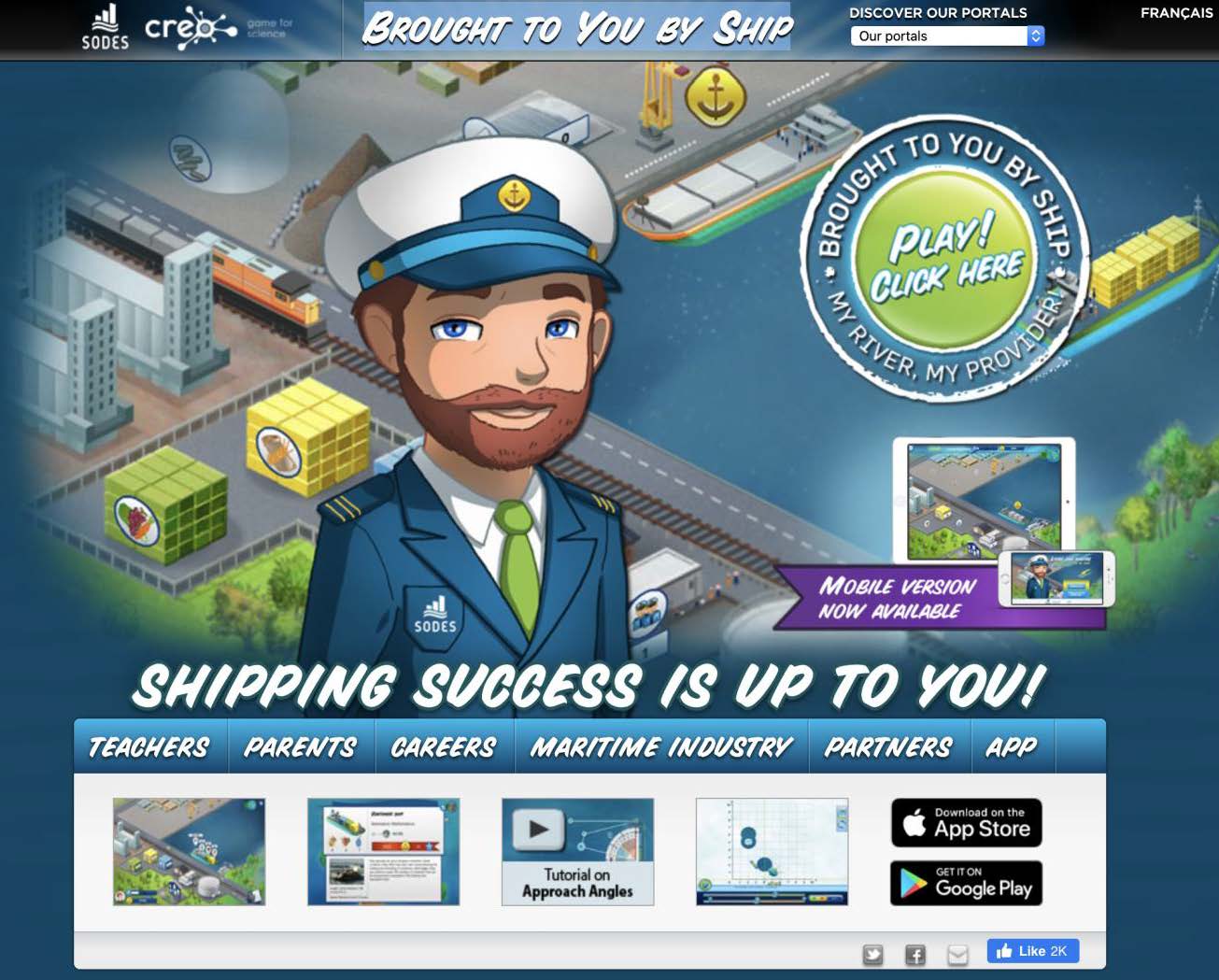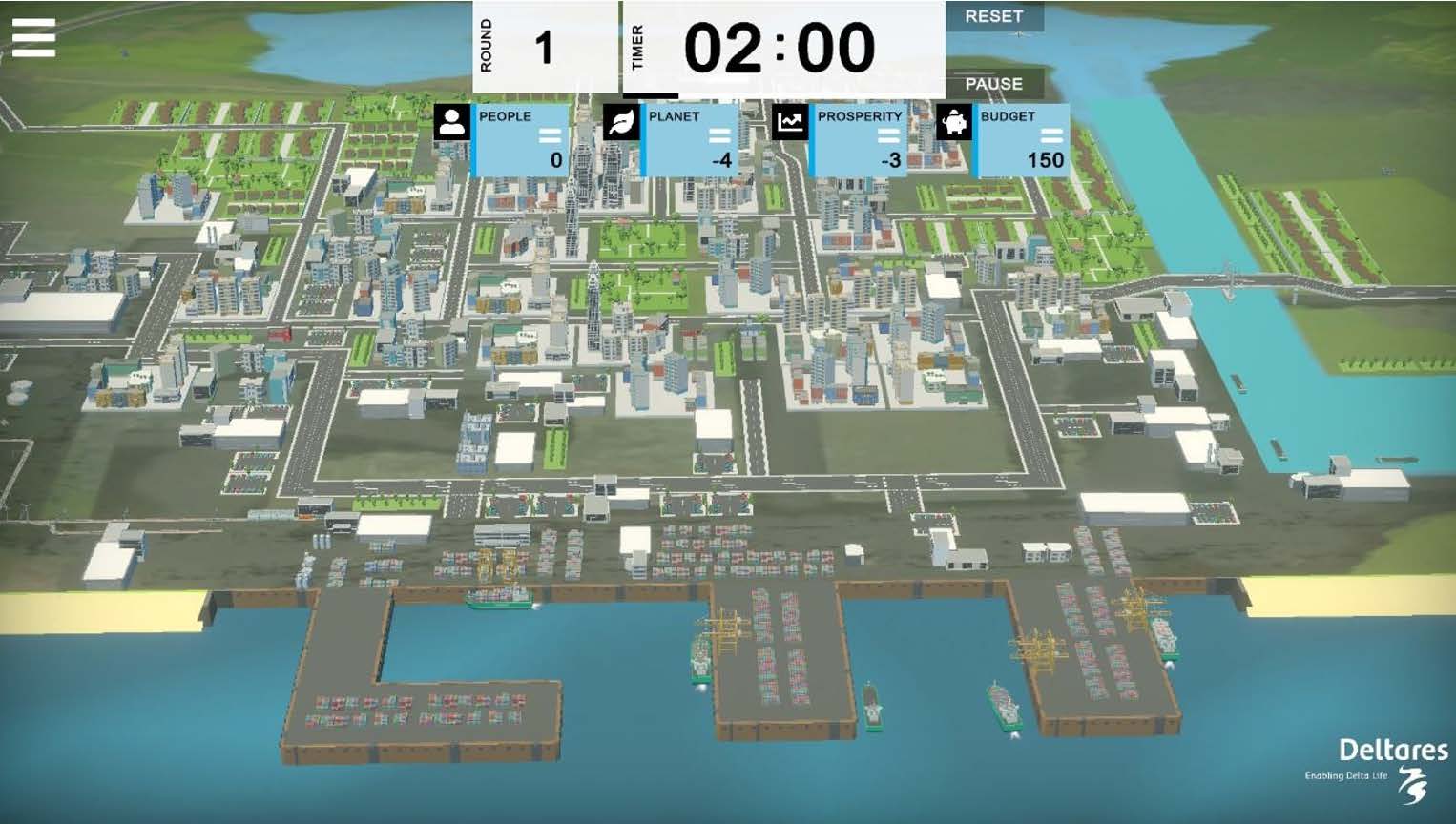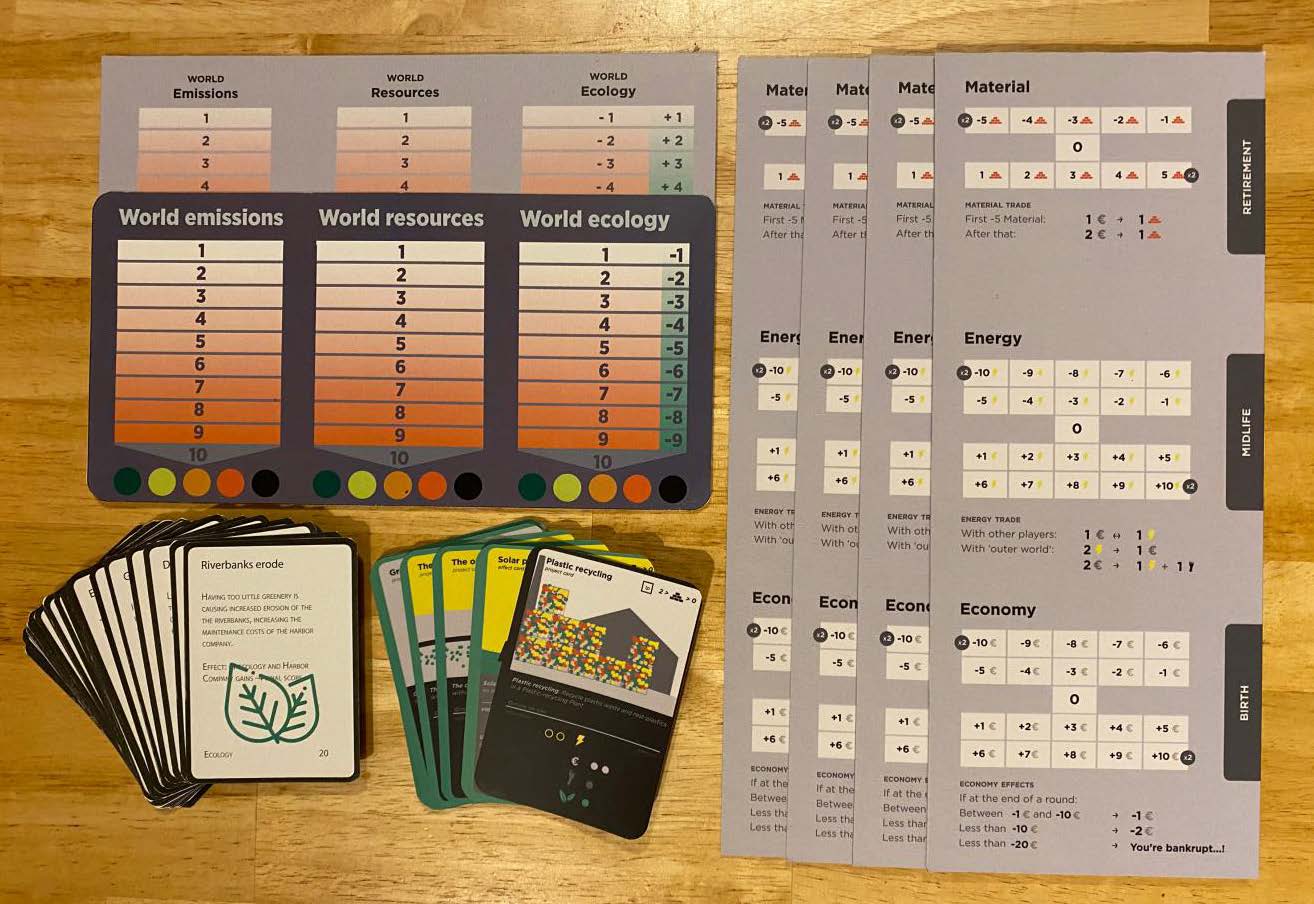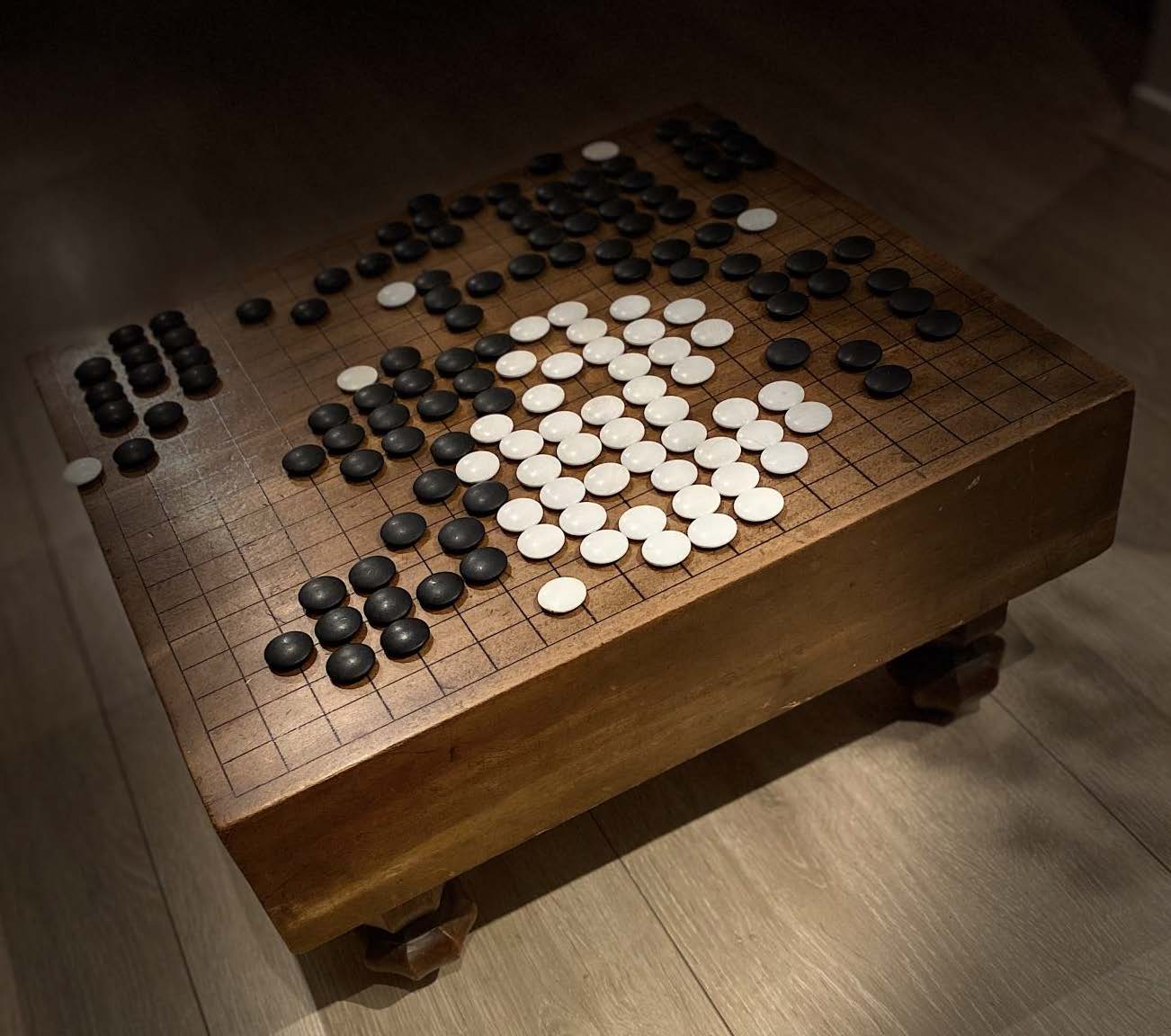Ports are key nodes in the global flow of goods and people, but the way they function; the role they play for the neighboring city and region; and their environmental, economic, social and even cultural impact are not widely known and understood. Given their importance in our current economy and in the context of the energy transition, ports merit specific attention not only from politicians, port planners or engineers, but also from urban and regional planners and a larger group of citizens. Games can help to advance better understanding. For many decades, port-themed board games—for example, two named after major port cities, Le Havre and Bremerhaven—have taken players into the world of shipping. More recently, serious games–that is gaming with a purpose other than pure entertainment–have become a way to inform a broad range of people on the complexity of ports and port-city relationships. They offer insight into the highly dynamic environment of ports, diverse interests of stakeholders, intricate decision-making processes, and the complex spatio-temporal context of port-city-region relationships. Such games can contribute to the much needed (re-)creation of a port city culture, or maritime mindset, understood as a strong and dedicated collaboration among diverse groups of public and private actors from different backgrounds around shared values [1].
Some games can have the simple goal of teaching children and citizens about the functioning of the port while aiming at raising the next generation of port employees at all levels. Livré par navire/Brought to you by ship takes the St. Lawrence–Great Lakes Trade Corridor as a point of departure (next image) [2]. An online game, it invites users to learn about the functioning of maritime logistics and to balance the growth, profitability and environmental efficiency of the company. It also offers fun activities to children, for example, who can learn about division by placing containers on ships or work with coordinates to avoid icebergs.
Livré par navire/Brought to you by ship game about the St. Lawrence– Great Lakes Trade Corridor. (http://www.scienceenjeu.com/livreparnavire).
Other games are aimed at more complex topics. SimPort-MV2 was among the earliest management games, inviting multidisciplinary teams to develop the Maasvlakte II extension of the Port of Rotterdam as a profitable international seaport over a timeframe of 30 years [3]. More recent games acknowledge the desire of ports to put circular sustainable growth at the front of their agenda. Originally developed for the Port of Rotterdam, Port Constructor [4] aims to develop a port that benefits people and the planet while producing profit. The game can be configured to any port layout and can focus on any imaginable issue among stakeholders, such as the question of energy transition and the ambition to implement a green port strategy (next image).
Serious Game: Port Constructor. (Source: Maurice Jansen).
Similarly, a greater understanding of port stakeholders for sustainable port-city development is the goal of the Port of the Future Serious Game, which involves “a fictional but realistic environment, autonomous scenarios, a set of measures and a qualitative set of indicators that provide information on the effects for society, natural environment and economy” [5] (next image). In this game, players are divided into teams representing different stakeholder roles. The players have to negotiate with each other about which functions to implement in the port-city, while balancing the needs for society (people), nature (planet) and economy (prosperity).
Port of the Future Serious Game screenshot. (Source: Wiebde de Boer).
Ports are key players in the much-needed transition to more sustainable practices and circular economies. The Port of Rotterdam states that they are committed to countering climate change to contribute to Dutch prosperity and employment and that they want to collaborate in creating economic and social value and realising sustainable growth [6]. Taking this statement as a point of departure, a group of MSc 2 students from Delft University of Technology in the course Building Green, developed a board and card game where players both compete and collaborate (first image and next image). Players have to accomplish individual goals in line with four different roles as Green Sector, Oil Company, Real Estate and Port Authority, knowing that all players only survive the game with a cooperative state of mind. The game promotes insight into the workings of a port-city, encourages support for sustainability, explains the multilayered complexity of the transition to sustainability, and demonstrates the tension between individual interest and the common interest.
Harbor Hustle, a serious board and card game developed as part of the final class assignment by MSc 2 students Coen de Vries, Teun van Knegsel van Knegsel, Michaël Vrijhof and Sali Asefa at Delft University of Technology in the course “Building Green”, taught by Carola Hein and Tino Mager in 2019.
Port development is also closely related to the future of the seas. This theme is at the heart of yet another serious game developed since 2011, Maritime Spatial Planning Challenge (MSP). This table-top strategy game aims to help players develop increased interest in “ecosystem-based Marine Spatial Planning (MSP) and sustainable Blue Growth (BG)” and to “achieve a productive but also clean, safe and healthy sea in their national and shared marine areas through the spatial allocation of economic and ecological functions and the development of shipping and line infrastructure (energy grid, cables)” [7]. MSP appropriately scales up the question of port and city relationships to an international or even intercontinental level.
Serious gaming has recently aimed to facilitate decisions on transport and shipping, to educate the general public on the workings of ports, and to teach professionals that competition can go hand in hand with cooperation. Games that challenge users to understand global shipping flows and their impact on port city regions, multiple nations and the world remain to be developed. Early serious games draw from board games, such as Monopoly or Risk. A future game could draw on the ancient Chinese game of Go, where two players aim to surround more territory than the opponent. slowly and smartly developing a long-term strategy, carefully placing their pieces (stones) to capture the opponent’s pieces (next image). Rather than competing against each other, the goal of such a game could be to develop an understanding of the far-flung spatial impact of ports and sea systems and the complex global system of stakeholders and interests.
Understanding the long-term impact of decisions in ports and shipping is complex. Disasters and disruptions such as the effects of climate change or a pandemic – have global implications and necessitate coordination and collaboration across cultures and continents. Reaching shared objectives and developing a shared set of values seem to be the ultimate goal. Perhaps it is time for a serious game that explores the interactions and connections of port cities’ development on a global scale?
Go Board with a fictional setup.
Acknowledgement
Thanks to Maurice Jansen for providing insights, comments, and images for the text.
Notes
[1] Hein, C. “Port-City-Regions in a Time of Transitions: Value Deliberations on Port City Futures.” Portus, no. 38 (2019). https://portusonline.org/port-city-regions-in-a-time-of-transitions-value-deliberation-on-port-city-futures/
[2] Sodes, Creo, Brought to you by ship, http://www.scienceenjeu.com/livreparnavire/ (last accessed April 18 2020).
[3] Bekebrede, G., J. Lo, and H. Lukosch, “Understanding Complex Systems through Mental Models and Shared Experiences: A Case Study.” Simulation & Gaming 46, no. 5 (2015): 536–62.
[4] Developed by Port of Rotterdam, Shipping and Transport College, Delft University of Technology, INTHERE and IHE Delft, financed by SmartPort.
[5] Deltares, Port of the Future Serious Game, https://www.deltares.nl/en/software/port-of-the-future-serious-game/#features
[6] Port of Rotterdam, Sustainability, https://www.portofrotterdam.com/en/our-port/our-themes/a-sustainable-port/sustainability (last accessed April 18 2020).
[7] Abspoela, L., I. Mayerb, X. Keijserc, H. Warmelinkb, R. Fairgrieved, M. Ripkene, A. Abramicf, et al. “Communicating Maritime Spatial Planning: The Msp Challenge Approach,” Marine Policy (2019).
Head Image: Conceptualization of Harbor Hustle, a serious board and card game developed as part of the final class assignment by MSc 2 students Coen de Vries, Teun van Knegsel van Knegsel, Michaël Vrijhof and Sali Asefa at Delft University of Technology in the course “Building Green”, taught by Carola Hein and Tino Mager in 2019.




